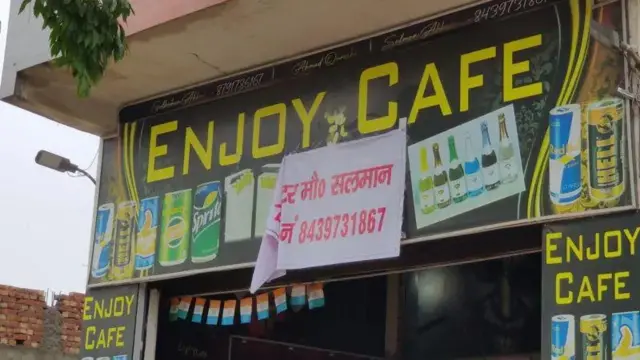Proposed laws to punish the contamination of food with spit, urine, and dirt in two Indian states have sparked controversy, with critics alleging they could be misused to vilify the Muslim community, while officials defend them as necessary for ensuring food safety.

This month, the northern state of Uttarakhand, ruled by India’s governing Bharatiya Janata Party (BJP), announced plans to fine offenders up to 100,000 rupees ($1,190; £920), while neighboring Uttar Pradesh, also BJP-led, is set to introduce stringent laws to address the issue.
The government directives followed the circulation of unverified videos on social media depicting vendors spitting on food at local stalls and restaurants, and one video showing a house-help mixing urine into food she was preparing. While the videos sparked outrage among users concerned about food safety, some also became the subject of blame campaigns targeting Muslims, which were later debunked by fact-checking websites.
Food and food habits are sensitive subjects in culturally-diverse India, as they are deeply intertwined with religion and the country’s hierarchical caste system. Norms and taboos around food sometimes lead to clashes between communities, sparking feelings of distrust. Consequently, the notion of “food safety” has also become entangled with religion, which is sometimes used to ascribe motive to alleged incidents of contamination.

The Food Safety and Standards Authority of India (FSSAI) estimates that unsafe food causes around 600 million infections and 400,000 deaths annually in the country. Experts cite various reasons for poor food safety, including inadequate enforcement of food safety laws, lack of awareness, cramped kitchens, dirty utensils, contaminated water, and improper transport and storage practices.
In response to the viral videos, Uttarakhand announced hefty fines on offenders and made it mandatory for police to verify hotel staff and for CCTVs to be installed in kitchens. Uttar Pradesh Chief Minister Yogi Adityanath said police should verify every employee to stop such incidents and plans to make it mandatory for food centers to display the names of their owners, for cooks and waiters to wear masks and gloves, and for CCTVs to be installed in hotels and restaurants. Reports suggest Adityanath is planning to bring in two ordinances that will penalize spitting in food with imprisonment up to 10 years.
However, opposition leaders and legal experts have questioned the efficacy of these laws and allege that they could be misused to vilify the Muslim community. The Indian Express newspaper criticized the ordinances proposed by Uttar Pradesh, saying they “act as a communal [sectarian] dog whistle that preys on the majority’s notions of purity and pollution and targets an already insecure minority.”

In July, India’s Supreme Court stayed directives issued by the Uttarakhand and Uttar Pradesh governments asking people running food stalls along the route of Kanwar yatra, an annual Hindu pilgrimage, to prominently display the names and other identity details of their owners. Petitioners told the top court that the directives unfairly targeted Muslims and would negatively impact their businesses.
Some incidents of alleged food contamination have been given a religious spin on social media, with Hindu nationalist accounts using terms like “thook-jihad” or “spit-jihad” to accuse Muslims of trying to defile Hindus by spitting in their food. This is not the first time the Muslim community has become targets of such accusations; during the Covid-19 pandemic, a series of fake videos showing Muslims spitting, sneezing, or licking objects to infect people with the virus went viral on social media, heightening religious polarization.

Opposition leaders in the two BJP-ruled states have criticized the new directives, saying they could be used to target Muslims and that the government was using such orders as a smokescreen to divert attention from other key problems like unemployment and sky-rocketing inflation.
However, Manish Sayana, a food safety officer in Uttarakhand, maintains that the government’s orders are solely aimed at making food safe for consumption. Legal expert and journalist V Venkatesan argues that existing laws under the Food Safety and Standards Act, 2006, are sufficient to address offenses related to food safety and questions the need for new laws and directives, emphasizing the importance of proper implementation over harsh punishments.
As the debate surrounding the proposed laws continues, it remains to be seen how they will be implemented and whether they will effectively address the issue of food safety without unfairly targeting any particular community.



